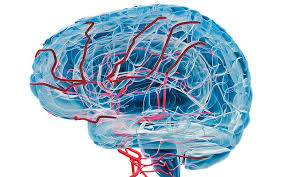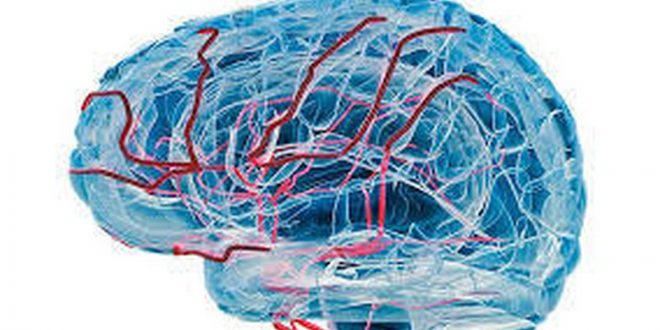
About two years before I finished secondary school in Lagos, Nigeria, my grandmother began to show symptoms of dementia, which included considerable difficulty carrying out normal tasks, loss of memory, disorientation, linguistic difficulty, poor judgment, and utter forgetfulness.
At 65, granny had become completely irritable, and her relationships with the family suffered tremendously. I had a lot of pity for the old woman because she could no longer hold a healthy conversation, could no longer remember the names of people, and the level of her relationship change over time.
I had no sufficient understanding of what was going on until a year into my undergraduate studies at the University of Ibadan, Ibadan, Nigeria.
Experts claim that dementia involves a significant loss of mental functioning, takes a toll on sufferers, weakens the ability of sufferers (including my grandmother) to preserve an existing relationship with the people around them.
Caring for Granny became boring and our relationship with her changed– deteriorated completely — until she passed on several months after she had started to be symptomatic.
Today, I miss my grandmother and usually look back with pangs of regrets as we watched her long for emotional connection without efforts to meet her at her points of emotional needs. Today, I continue to believe within me that granny had died of very ‘manageable dementia’.
“Grandma shouldn’t have died when she died”, I once sent a text message to a top family member while living on a university campus. Again, today, I still have bad feelings about the death of Mrs. Bello Olori-Oba, my beloved grandma.
A great number of families in Nigeria and the United States are going through a similar episode—realities of elderly persons with Alzheimer’s who long to listen and be listened to; very difficult events of people with dementia who have lost the “touch” of families and loved ones.
They simply lost family connections because they have dementia. That isn’t right!
Dementia from an evidence-based perspective
Dementia is a cognitive and intellectual deterioration; the usually progressive deterioration of intellectual functions such as memory that can occur while other brain functions such as those controlling movement and the senses are retained.
While dementia can be a generic word for intellectual or cognitive decline in aged men or women, it has several forms. One of the most common forms of dementia, is Alzheimer’s. Experts in neurology asserted that Alzheimer’s is what usually comes to people’s minds when they hear dementia.
It was what came to my mind when the doctors said that my grandmother had developed dementia. Experts claim that between 60% to 80% of sufferers of dementia have Alzheimer’s disease. According to UK Alzheimer’s Society (2019), over 850,000 people have Alzheimer’s, the most common form of dementia. Parkinson’s Disease and Vascular Dementia are other major types of dementia
The most common cause of dementia is Alzheimer’s disease, or simply Alzheimer’s. As informed above, between 60% to 80% of individuals with dementia have Alzheimer’s disease. Other causes of dementia may include a hard fall that causes head injury, damaging the frontal lobe that’s in charge of executive functions. Several degenerative neurological diseases, including Parkinson’s disease, Huntington’s disease, and multiple sclerosis also cause dementia.
According to experts, depending on the affected area of the brain, under normal circumstances, dementia goes through the following stages:
No injury. An individual at this stage will not show symptoms, although examinations may reveal an underlying problem. Then, fairly mild decline, mild decline, moderate decline, moderately severe decline, several decline, and finally, very severe decline. Loss of memory sets in, including poor judgment, poor language, motor, and other functions that require thinking. Behaviors also change unusually.
Individuals with dementia and family care
The responsibility for caring for people with dementia generally falls on their spouses and children. Caregivers must constantly be on guard for the possibility of a dementia patient wandering away or becoming agitated or confused in a manner that jeopardizes the patient or others. Coping with a loved one’s decline and inability to recognize familiar faces causes enormous pain.
The increased burden faced by families is intense, and the life of the Alzheimer’s caregiver is often called a 36-hour day. Not surprisingly, caregivers often develop health and psychological problems of their own as a result of this stress. The Alzheimer’s Society (UK), and the Alzheimer’s Association, a national organization with local chapters throughout the United States, were established in large measure to provide support for dementia caregivers.
Today, national and local chapters are a valuable source for information, referral, and advice. This has helped to mitigate against the impact of developing dementia on individuals with dementia and their family.
In the next essay, we will discuss the changing neuropathology of dementia, the aging process, stages of development, and presentation. Finally, we will analyze the support needs of our elderly people with dementia.
 Top Naija News – Nigeria News, Nigerian News & Top Stories Top Naija News – Nigerian Newspapers, Nigerian News. topnaijanews is a daily Nigerian newspaper covering Latest News, Breaking News, Entertainment, Sports, Lifestyle and Politics.
Top Naija News – Nigeria News, Nigerian News & Top Stories Top Naija News – Nigerian Newspapers, Nigerian News. topnaijanews is a daily Nigerian newspaper covering Latest News, Breaking News, Entertainment, Sports, Lifestyle and Politics.




